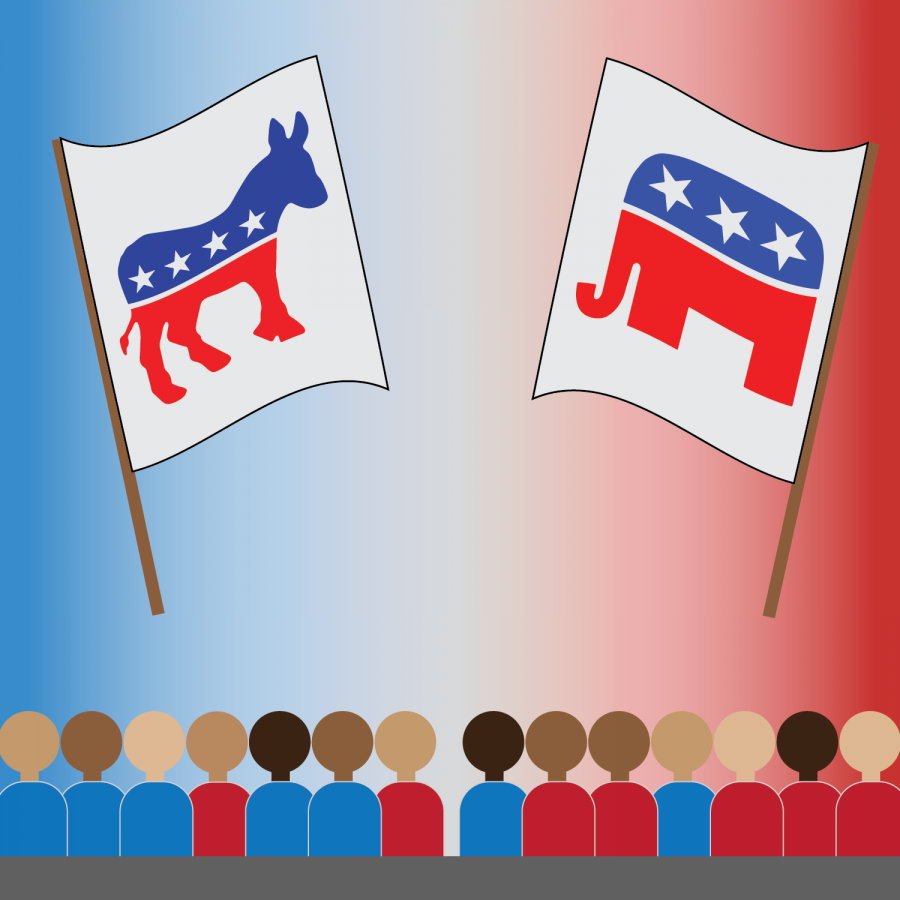Divisiveness is inherent to progress
Apr 2, 2018
There seems to be a truistic belief that contemporary American politics are more divided and polarized than that of our predecessors. With far-right factions emerging as a response to immigration and globalization and far-left factions emerging as a response to increasing economic inequality, the common ground appears to be shrinking. Each group assesses blame to different groups of people without much mutual understanding of the issues; thus, this halts our ability to progress as a civilization.
This narrative, while it is accurate in addressing hyper-partisanship, is not accurate when regarding ideological divides behind the partisanship. Though the cultural and economic questions America and the rest of the West face have created movements for further-reaching ideologies, this isn’t rare when looking at the history of American progress. It’s always been a fundamental part of that progress.
In February 2016, former President Barack Obama gave a speech at the Illinois State Capitol in Springfield, Illinois. In his speech, the president hearkened to fellow Illinois political legend Adlai E. Stevenson when he said American progress through patriotism is found not in “short, frenzied outburst of emotion, but the tranquil and steady dedication of a lifetime.”
People tend to not realize today’s history is yesterday’s politics. There has never been a period in which individuals with major differences have lived in harmony. The issues change, but they simultaneously stay the same. Whether that be an economic downturn, a new immigrant group or emerging war, the types of issues Americans disagree on remain ever-changing while maintaining those sort of basic archetypes of political battles. These issues reflect on how people perceive their leaders.
Obama went on to describe how Abraham Lincoln, arguably the greatest president the nation has ever seen, was “routinely called ‘weak,’ ‘wishy-washy,’ a ‘yahoo,’ ‘an unshapely man,’ ‘the obscene ape of Illinois.’” Reflecting on the legacy his presidency has in the country 150 years since his assassination, these sorts of claims appear ludicrous.
Get The Daily Illini in your inbox!
Perhaps even more absurd when viewed with the 21st century eye is John F. Kennedy having to prove to the American people that he was a valid, trustworthy candidate. But not because of policy or presidential issues. Many initially denied Kennedy from the perception that he was a legitimate presidential candidate because he was Catholic, not Protestant.
The sorts of things differing groups see as blasphemous or dangerous in contemporary times may not remain that way.
During the last years of the 19th century going into the first decades of the 20th, labor strikes containing Marxist themes emerged across the nation. Given that many occurred during the first Red Scare, a vast majority of the general public opposed these strikes, especially the federal government.
But it was these strikes that helped contribute to safer work environments, which increased wages and prevented employers from overworking their employees. These employment regulations are byproducts of liberal and Marxist desires compromising for an overall better labor condition in the workplace. They are now modern business practices in contemporary America and both workers and businesses see their positives.
This is not to say that all things looked upon negatively will be or should be accepted as a norm in the future. History is not inherently progressive, but the decisions made on behalf of the people can lead to progress. And so far, the tale has been a progressive one.
But that doesn’t come without the gridlock, without the ideological differences and without the polarization. America once went to war with itself when facing a fundamental question about the claim that “all men are created equal.” Our gradual scale to a better civilization is the byproduct of our incrementalist structure, which allows polarized people to come together for a pragmatic solution. This ensures regime changes and civil wars are a once-in-history occurrence and not a cyclical one.
The rhetoric and hyper-partisanship of contemporary politics are undeniably frustrating to both political officials and normal citizens alike. But it is vital to remember the divides are not new to the American experiment. They have been an integral part in ensuring progress.
Austin is a sophomore in LAS.






